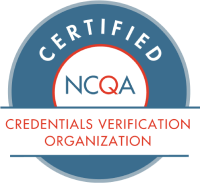Credentialing is the process of verifying the qualifications and credentials of healthcare professionals in order to ensure that they are qualified to provide patient care. This process is critical for maintaining the quality of patient care and for protecting the public from unqualified practitioners.
To combat the potential for intentional or unintentional data inaccuracies in the information provided by healthcare professionals, a thorough and robust verification process should be put in place. This includes but is not limited to background checks, verification of education and training, and verification of licensure and certification.
However, the process of healthcare credentialing is not simple. Issues in healthcare provider credentialing range from the large volumes of data to be verified, which can lead to delays and additional expenses in the process, to downstream outcomes like delays in reimbursements, fines or penalties, exclusion from federal and state programs, and even negative patient health outcomes when proper credentialing procedures are not followed.
In this article, we will explore some of these issues in medical credentialing, as well as discuss potential solutions.
Data issues in the medical credentialing process
One of the biggest challenges in credentialing is the sheer volume of data that must be collected and verified. Healthcare professionals must provide a wide range of information during the application process, including their education and training, professional experience, licensure and certification, and malpractice history. Verifying this information can be time-consuming and resource-intensive, particularly when dealing with large numbers of applicants. When organizations tackle this process in the traditional, manual manner, timelines can stretch out through months. Time is wasted and costs mount as credentialing professionals keep trying to make contact via phone, fax, and email.
“
One of the biggest challenges in credentialing is the sheer volume of data that must be collected and verified.
”
Another major credentialing issue is inaccurate, outdated, or incomplete data. Perhaps a provider’s application contains a typo in an email or phone number. This innocuous mistake can lead to multiple outreach attempts that are doomed to failure. Similar issues can arise when a provider, practice, or educational institution moves and contact information doesn’t get updated. Multiplying these seemingly minor issues by the sheer volume of credentialing applications being processed can waste vast amounts of time and money.
Addressing data issues in the medical credentialing processing
The most straightforward solutions to data issues in credentialing are the use of automated systems for data collection and verification and building a reliable data resource to streamline primary source verifications. Automated systems can streamline the process of collecting and verifying information, making it more efficient and less resource-intensive. The repository of data in the a* platform helps autofill provider information from verified sources, so that it’s nearly impossible for incorrect information to be submitted. In the 20 minutes it takes to complete, our application takes the burden off of credentialing applicants. Meanwhile, the a* platform ingests the data from healthcare provider applications and validates it against other data sources including educational institutions, state licensing boards, federal databases, regulatory entities, and more, creating a wealth of validated provider data to be leveraged throughout the credentialing process. At this point, these data stores cover over 7.5 million providers, which can be leveraged for credentialing, but also for network development, management, and optimization.

Lack of standardization in the credentialing process
Another challenge in medical credentialing is the lack of standardization in the process. Despite the critical need to get credentialing decisions right, there isn’t a federal law governing how healthcare organizations credential providers. While laws prohibit healthcare providers from offering services without the appropriate qualifications, there is no law governing how provider groups, hospitals, or health plans must go about verifying providers’ credentials.

Different organizations have different requirements for credentialing, and there is no one set of standards that all healthcare professionals must meet. This can make it difficult for healthcare professionals to know what is required of them, and can also make it difficult for organizations to compare the qualifications of different professionals.
The closest thing to a de facto standard in healthcare credentialing is the National Committee for Quality Assurance (NCQA). Among their services, NCQA Credentialing Verification Organization (CVO) Certification offers healthcare credentialing service providers and clients assurances that their credentialing standards meet third-party standards for efficiency and accuracy. NCQA’s credentialing standards serve as the standard for managed care plans, and the organization also offers accreditation and report cards for health plans, so patients can identify the plans that best meet their needs.
“
The andros platform offers the strictest level of NCQA certification available.
”
The andros platform offers the strictest level of NCQA certification available. With such rigorous standards applied to every provider’s application, andros drastically reduces errors and audit risks for clients, so they can be reassured that their network quality is exceptional. Combining speed with NCQA certification ensures that credentialing meets the needs of health plans, providers, and ultimately patients.
Medical credentialing is a crucial process for maintaining the quality of patient care and for protecting the public from unqualified practitioners. However, the process is not without its challenges. But the andros solution–using automated systems for data collection and verification, developing a centralized database of healthcare professionals, and implementing thorough and robust verification processes–can help health plans and provider networks overcome these challenges and ensure that only qualified medical professionals are providing patient care.
Find out more about how andros technology is transforming credentialing.



